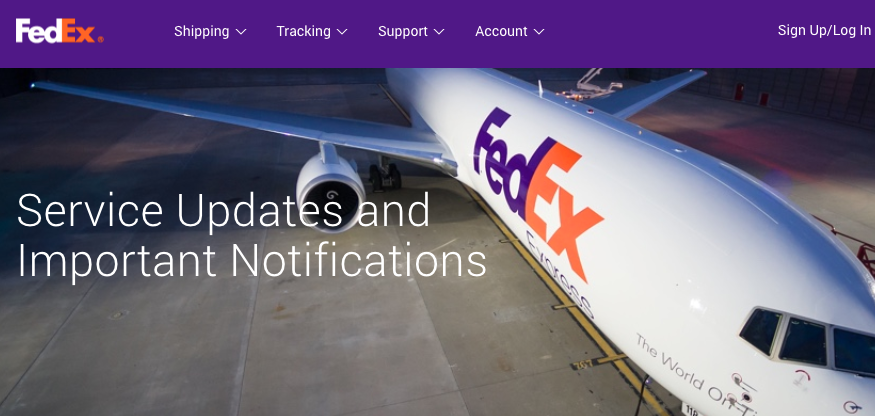Online Fraud Alert: Fedex Fraudulent Email Alert. Protect yourself from scammers and phishing emails. Learn how to avoid people who make use of unauthorized Fedex Business names to dupe the public.
Unauthorized use of FedEx® Business Names, Service Marks and Logos
The support team of FedEx says through their website that they have been alerted to the unauthorized use of its business names, service marks and logos. All these are done by persons or companies fraudulently representing themselves as FedEx or as representatives of FedEx.
This is to inform you that millions of fraudulent e-mails and sms messages are sent everyday. In their Fedex scam messages, they usually claim to come from a wide variety of sources. Also, some of them claim to be from FedEx or representing FedEx delivery company. These fraudulent e-mail and sms messages, also known as “phishing” or brand “spoofing,” are becoming rampant. Cases reported daily is increasingly common. These types of messages often use corporate logos, colors and legal disclaimers to make it appear as though they are real. Bear in mind that SMS as well as emails are sent in an attempt to trick people into sending them money. They go as far as convincing you to provide personal information such as usernames, passwords and/or credit card details. The main purpose of this is for committing theft, identity theft and/or other cyber crimes.
Recognizing Phishing Scam E-mails and sms messages
The main key to protecting yourself against online theft and other crimes is by recognizing phishing scam e-mails and sms messages. There are four indicators that shows that an e-mail or sms message might be fraudulent. They include:
- Unexpected requests for money in return for delivery of a package or other item, personal and/or financial information, such as your Social Security number, bank account number, or other identification.
- Links to misspelled or slightly altered Web-site addresses. For example, variations on the correct Website address fedex.com, such as fedx.com or fed-ex.com.
- Alarming messages and requests for immediate action, such as “Your account will be suspended within 24 hours if you don’t respond” or claims that you’ve won the lottery or a prize.
- Spelling and grammatical errors and excessive use of exclamation points (!).
FedEx Text Scam Alert: Fake Delivery Notifications SMS & Email
Do not forget that FedEx does not request, via unsolicited mail, e-mail or sms messages. They also do not ask for payment or personal information in return for goods in transit or in FedEx custody. With that in mind, if you have received a fraudulent e-mail or sms message that claims to be from FedEx, you can report it by forwarding it to abuse@fedex.com. Fedex Fraudulent Email are numerous.
If you have any questions or concerns about services provided by FedEx, please review their services at FedEx Services or contact FedEx Customer Service. Take a look at Fedex Real Time Tracking Tool.
The Internet is an important channel connecting FedEx to its customers. While there is no foolproof method to prevent the unauthorized use of the FedEx name. Fedex support teams continuously watch for such activity in order to help safeguard our customers’ interests.
Thank you for helping us identify and take action against e-mail & sms fraud.
NOTE: FedEx is not responsible for any charges or costs incurred as a result of fraudulent activity that abuses the FedEx name, service marks and logos.
FedEx does not require money transfers through third-party escrow services or online payment services prior to shipment delivery.
The use of the FedEx logo and name on these websites is unauthorized and our legal department will address this matter with the relevant authorities.
Beware of Phishing E-mail
FedEx is committed to protecting the security and integrity of the network. Fedex Fraudulent Email
While there is no foolproof method to prevent the respected FedEx name from being used in spam emails or potential scams, we are constantly monitoring for such activity and work cooperatively with law enforcement agencies around the world.
We urge customers to be suspicious of any request not coming directly from a FedEx employee or domain name, especially if it contains an attachment which the customer is asked to open.
Customers should not hesitate to contact us if they have questions regarding the legitimacy of an email soliciting payment in advance or requests to provide additional or personal information.






